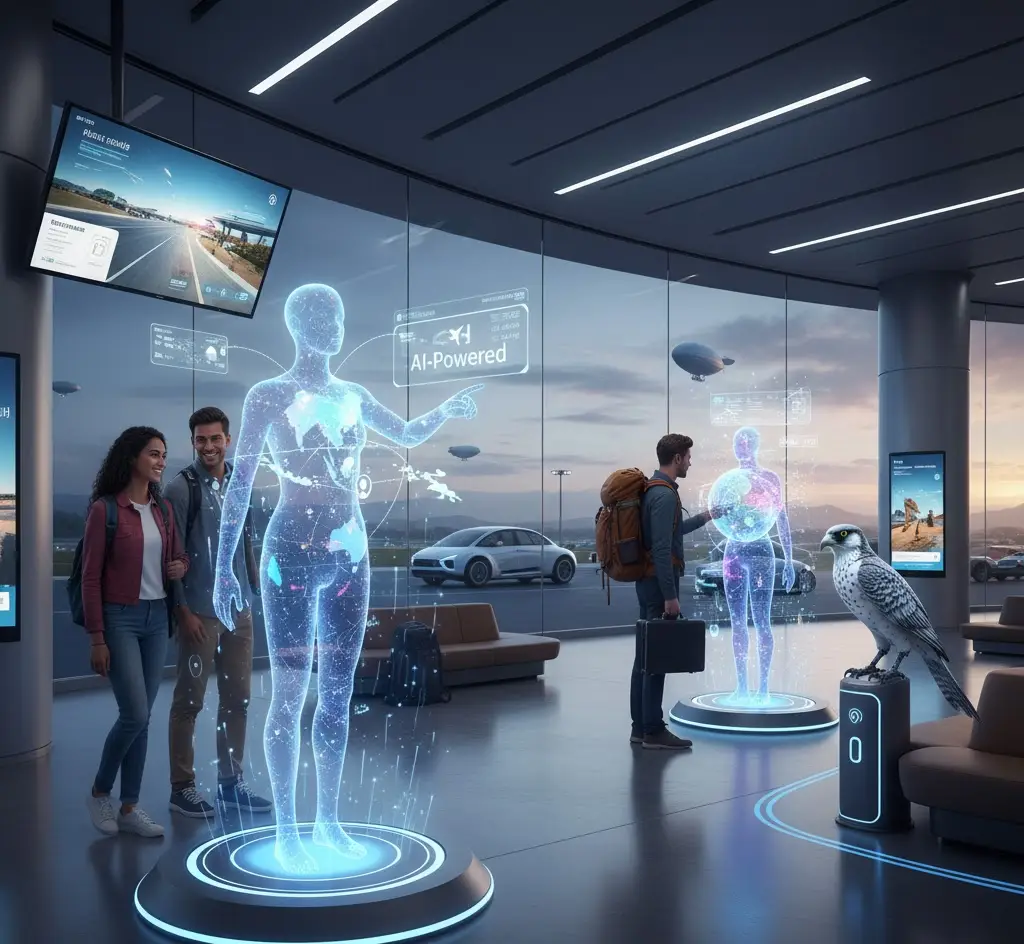With the world entering a new decade, 2026 is the year when travel planning has never looked so different. As AI gradually permeates into almost every nook and cranny of our lives, it is little wonder that travel will be one of the most affected industries. One of the most exciting developments on the horizon has to be the rise of the AI-powered travel assistant: tools designed to make travel planning more personalized, seamless, and efficient than ever before. These intelligent systems won’t just recommend destinations and activities; they will offer tailored experiences, adapting to individual preferences, real-time data, and even a traveler’s mood.
Travel Planning: How It Has Evolved
Planning a trip used to take hours of research, comparison, and sometimes even frustration. A traveler had to go through numerous websites, read reviews, and manually organize flights, accommodations, activities, and transportation. This was often time-consuming and overwhelming.
Log in.
While over the last couple of years, AI has already begun to play a role in automating simple tasks-such as booking flights or suggesting destinations based on past searches-by 2026, AI-powered travel assistants will go much further: they will be sophisticated enough to offer personalized suggestions, anticipate needs, and handle complex itineraries in ways that feel natural and intuitive.
What Are AI-Powered Travel Assistants?
AI-powered travel assistants are digital platforms or applications that apply machine learning, natural language processing, and big data to help travelers plan and book their trips. Think of them as a personal travel concierge-always available, always learning from your preferences, and ready with insights from vast amounts of data.
These assistants will not only help you find the best deals on flights or suggest activities based on your interests but will also understand the context of your travel history, social media interactions, past feedback, and even your current mood to provide the right personalized travel plan for you.
For instance, if you are a foodie and enjoy trying local cuisine, then your AI assistant may suggest out-of-the-way restaurants, food tours, and even cooking classes. If you like history, it can recommend historical places and museums that would fit your interests. And over time, the more you use the assistant, the more it’ll learn your tastes and make each trip tailor-made for you.
Key Features of AI Travel Assistants in 2026
Hyperpersonalization: Most travel websites normally offer recommendations based on popular trends or the behavior of a user in the past. AI travel assistants, however, will go the extra mile to make sure travel suggestions fit your unique interests, lifestyle, and even budget. Think of an assistant who knows you love hiking in the mountains but also want luxury accommodation; it can suggest how to combine adventure with comfort without you sweating over it.
Real-time Adaptability: Perhaps one of the most thrilling things about AI travel assistants is their real-time adaptability. Say your flight is delayed, or the weather suddenly takes a turn for the worse. Your AI assistant will not only adjust your itinerary but may also suggest nearby indoor activities, reroute your transport, or help you find a cozy restaurant to pass the time. These assistants will monitor your entire journey to ensure any hitch is well managed.
Seamless Integration with Smart Devices: By the year 2026, smart devices (think voice assistants, whether it be Amazon’s Alexa or Apple’s Siri) will further weave their way into travel planning. You will be able to literally talk to your virtual assistant, and it will send you a stream of information on everything from flight status to local events. At what time is my train leaving? Just ask, and the assistant responds in a real-time answer.
Improved Accessibility: AI assistants will make travel more accessible, particularly for people with disabilities. They can find accommodations offering accessibility features, guide travelers to wheelchair-friendly routes, or even provide real-time language translation for a smooth experience in foreign countries.
Sustainability and Eco-Friendly Travel: With sustainability becoming of essence to travelers, AI assistants are set to become instrumental in making eco-friendly choices while traveling. From suggesting green hotels to finding the most carbon-efficient routes, these assistants are going to be at the helm of decision-making by travelers in ensuring their choices align with their environmental values. You may even receive personalized recommendations for eco-friendly tours or activities.
Security and Safety: AI-powered assistants will also enhance traveler safety. They can alert you to possible travel disruptions, natural disasters, or even health-related concerns; they can offer alternative plans and make sure you are up to date throughout your journey. Integrated security features, like facial recognition for hotel check-ins or real-time alerts for suspicious activity, further help an AI assistant make a traveler feel more secure-whether in familiar territory or far from home.
How Will AI Travel Assistants Benefit Travelers?
Time-Saving: AI assistants will greatly reduce the time one spends on research and comparisons. Instead of going through dozens of websites, the travelers can simply ask their assistant for suggestions, and the AI will provide curated, personalized recommendations.
Cost Efficiency: Through understanding your preference and budget, AI assistants could provide the best deals, whether it is on flights, accommodation, or activities. The assistant might even suggest discounts or special offers based on your travel habits.
Stress-Free Experience: Travel may sometimes turn out to be stressful, especially when things do not go as anticipated. AI assistants will take the pressure off by offering real-time solutions to any problem, whether rerouting flights or finding a last-minute hotel.
Improved Travel Experience: With AI assistants learning from each interaction, they will get better with recommendations, thus making any travel experience you have with their assistance better with each trip you take.
The Future of AI in Travel: What to Expect in 2026 and Beyond
The new landscape of travel planning will become even more intuitive and interconnected as AI evolves. We can expect full integration of AI into every stage of the travel journey, from pre-travel planning and booking to on-location experiences and post-trip feedback.
By 2026, AI-powered travel assistants will be more than just convenient; they will have turned into an indispensable tool for the modern-day traveler. They offer personalized, efficient, and seamless travel experiences. Whether for business, leisure, or adventure, your AI assistant will make it all so much easier, smarter, and more enjoyable.
FAQs:
1. How will AI improve my travel planning in 2026?
AI will offer hyper-personalized recommendations based on your preferences, help you manage your trip in real-time, and ensure you make the best decisions for your budget and travel style.
2. Can AI travel assistants handle disruptions during my trip?
Yes, AI assistants will be able to adjust your itinerary in real-time and suggest alternative plans if there are delays, cancellations, or unexpected events during your trip.
3. Will AI assistants be able to recommend eco-friendly travel options?
Absolutely. AI-powered assistants will help travelers make sustainable travel choices by suggesting eco-friendly accommodations, activities, and transportation options.
4. Are AI assistants secure to use while traveling?
Yes, AI assistants will incorporate security features, such as real-time alerts, travel safety advice, and even facial recognition for check-ins, to ensure a safer travel experience.
5. Will AI assistants replace travel agents?
While AI assistants will handle much of the research and planning, human travel agents will still play a role in offering specialized services for complex itineraries or unique travel needs.
Also More: The Future of Cinema: AI Actors and Virtual Film Sets



